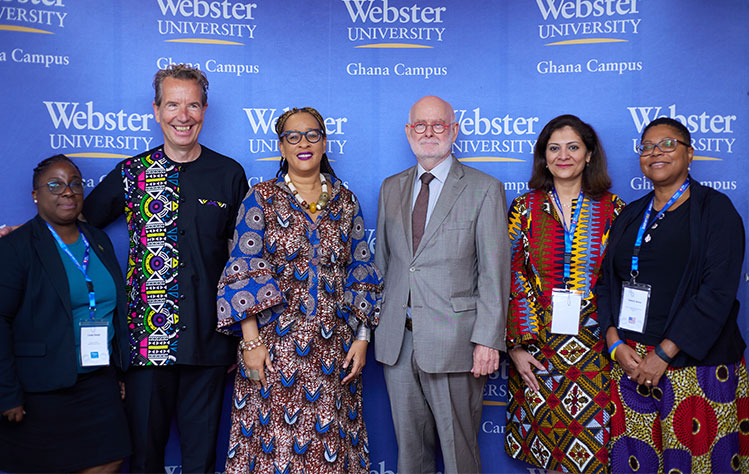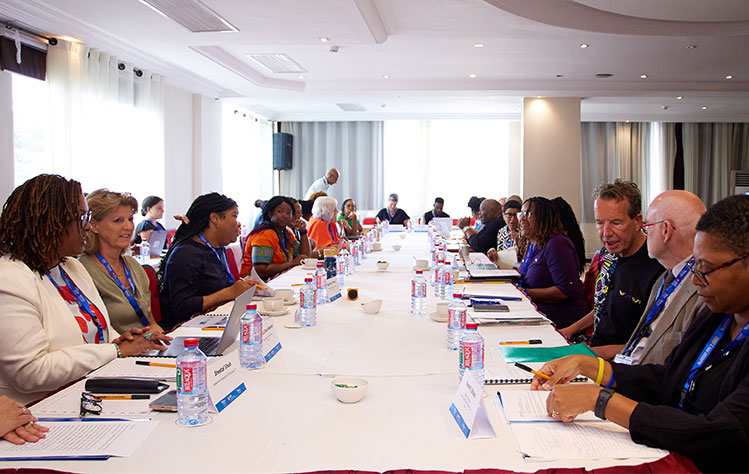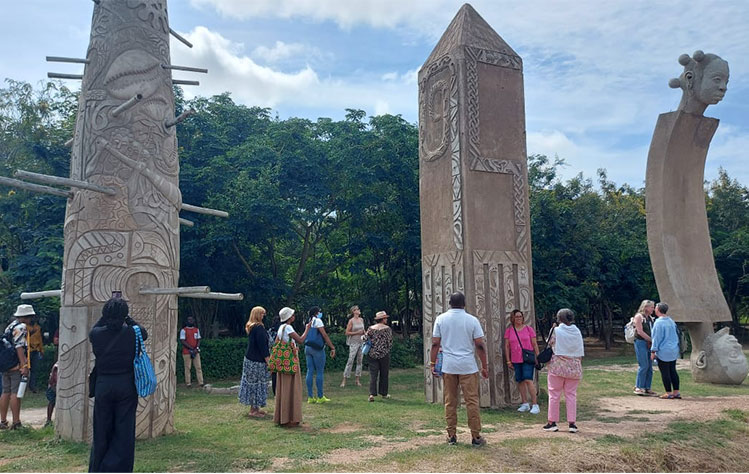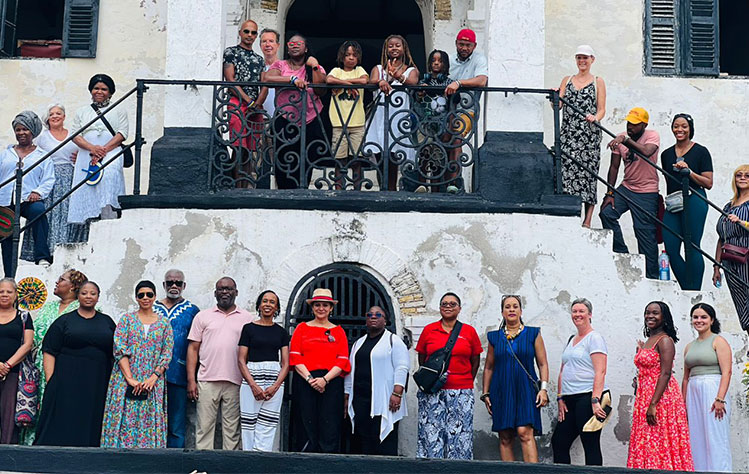Seventh Global Conference on "Slavery Past, Present and Future" Explores Dimensions of Slavery in Accra
July 14, 2023

Slavery Past, Present and Future conference leaders. From left to right: Linda Deigh (Academic Director, Webster Ghana), Prof. Dr. Jean Paul van Marissing (Director, Webster Leiden Campus), Christa Sanders (Campus Director, Webster Ghana), Jeroen Verheul (Netherland's Ambassador to Ghana), Sheetal Shah (Academic Director, Webster Leiden Campus) and Karen E. Bravo (Dean, Indiana University Robert H. McKinney School of Law).
Webster University Ghana proudly hosted the seventh global Slavery Past, Present and Future conference in Accra, Ghana, in collaboration with Webster Leiden and Indiana University, Robert H. McKinney School of Law. The event was spearheaded by Webster Leiden Academic Director Sheetal Shah and Indiana University Robert H. McKinney School of Law Dean Karen E. Bravo, alongside the valuable contributions of Webster Ghana Academic Director Linda Deigh. Together, they gathered an esteemed cohort of 50 participants representing universities from the US, Europe, and Africa. This historic conference marked a significant milestone as the first of its kind on the African continent.
The event commenced with warm welcomes from Christa Sanders, campus director of Webster University Ghana, and Jean Paul van Marissing, campus director of Webster Leiden. Jeroen Verheul, Netherland's Ambassador to Ghana, delivered a powerful introduction speech, emphasizing the importance of addressing slavery from a global perspective and acknowledging the Dutch King's apology for their country's role in the slave trade.
The conference was organized into thematic sessions, exploring various aspects of slavery. The first day focused on topics such as slave resistance in colonial Igboland, black self-armament, post-Civil War newspaper coverage of colored troops, the design and role of US prisons, the origins of family law, and the contributions of white, slaveholding fathers to wealth disparities. The subsequent sessions delved into slavery's mutations and adaptations, police violence, criminalization of black resistance, and the impact of slavery on contemporary issues like reproductive rights and justice.

Conference attendees sit at table for a discussion.
The second day continued the discussions on resistance, covering subjects like abolishing gang statutes, marijuana social equity policy, and the use of federal employment law to combat human trafficking. Additionally, the conference explored new forms of slavery, shedding light on topics ranging from fishing community perspectives on child trafficking intervention to digital platforms tracking modern-day slavery. These thought-provoking presentations and stimulating discussions provided deep insights into the historical, present, and future dimensions of slavery, addressing its profound impact on societies worldwide.
The conference included an immersive visit to the Nkyinkyim Museum in Ada Foah, dedicated to preserving the history of slavery and celebrating African cultural heritage. Attendees had the opportunity to view sculptures and installations by renowned Ghanaian artist Kwame Akoto.

Attendees view sculptures by Ghanaian artist Kwame Akoto.
Conference participants also visited the Elmina and Cape Coast slave dungeons, as well as the Assin Manso Ancestral Slave River, where slaves were bathed before being transferred to the dungeons. These visits served as a solemn reminder of the painful history and atrocities of the transatlantic slave trade.

Conference attendees at the Elmina and Cape Coast slave dungeons.
Overall, the conference was a thought-provoking and enlightening event, bringing together scholars, activists, and individuals dedicated to understanding and combatting slavery in all its forms. Through dialogue and collaboration, the conference made significant contributions to the ongoing fight for justice, equality, and human rights, reaffirming the commitment to create a world free from the chains of oppression.
